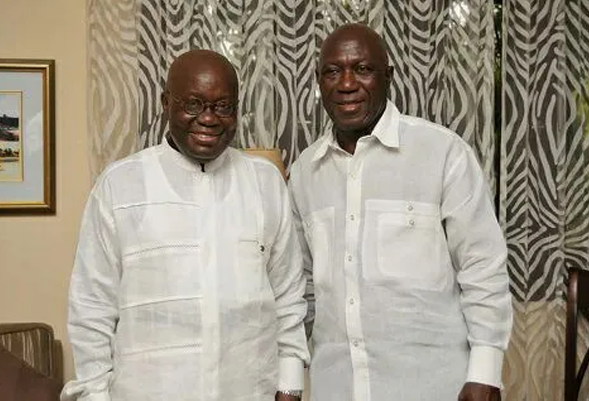The head of the presidential guard at Jubilee House, Capt. Edmund Kojo Kodah, has reportedly fled Ghana to the UK, joining a discreet exodus of government officials leaving the country in the aftermath of the New Patriotic Party losing the 2024 elections.
Kodah, a fugitive who had previously sought asylum in the UK before returning to head the personal security of President Akufo-Addo, is said to have departed to his country of exile on Thursday night.
The reasons behind Kodah’s sudden departure are believed to be linked to accountability for his actions while serving President Akufo-Addo, as well as internal conflicts within the presidential guard unit that he led.
Sources suggest that tensions arose over financial matters, particularly concerning the non-payment of Enhanced Salary Structures (ESB) to the guards, while senior political appointees, including Chief of Staff Frema Osei Opare, reportedly awarded themselves substantial ESBs.
Reports indicate that the strained relations between the Presidential Guards and high-ranking officials of the Akufo-Addo administration escalated to the point where physical confrontations were considered.
In November, there were purported plans by some guards to physically confront both the Chief of Staff and Captain Kodah, although the scheme was disclosed prematurely.
Kodah is said to be aware of potential threats from the guards who accuse him of prioritizing personal gain over their welfare. Concerns have been raised that the guards might be plotting a physical assault on Kodah and a potential raid on his residence.
Previously known for his involvement in establishing the “invisible forces,” a private armed group associated with President Akufo-Addo, Kodah has a controversial background.
The invisible forces, comprised of NPP-linked youth trained in combat tactics by mercenaries, gained infamy for their involvement in violent incidents across Ghana.
Captain Kojo Kodah was also identified as part of a group of rebel soldiers implicated in a failed coup attempt during the 1990s, for which he served time in prison. Following his escape to the UK and subsequent application for asylum, Kodah rose to prominence as a critical security figure within the NPP, providing protection to key party figures including Nana Addo Dankwa Akufo-Addo and Dr. Mahamudu Bawumia prior to the party’s ascension to power in 2017.
Since assuming the role of security coordinator for the Presidential guards after the NPP’s electoral victory, Kodah’s tenure has been marked by controversy and internal strife, culminating in his recent departure from Ghana.


